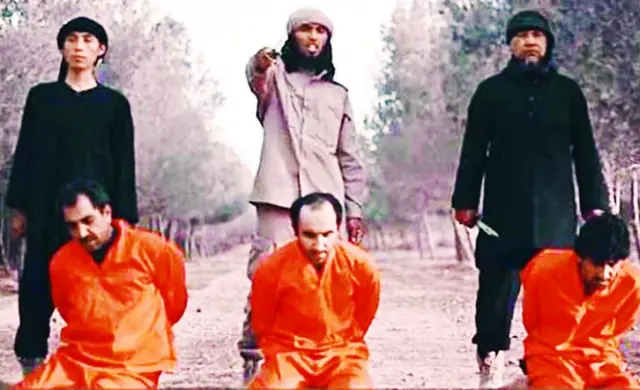Malaysian Mohd Rafi Udin, a former taxi driver, had not been seen since 2014 when he left the country to join Islamic State (IS). That was until he appeared last week in an IS propaganda video, alongside an Indonesian and Filipino. They each beheaded a Middle Eastern-looking prisoner. It was the first time Southeast Asian fighters have been filmed carrying out beheadings.
It was a quantum leap in brutality for Southeast Asian fighters, regarded as coming from a gentler culture than their Arab counterparts.
Islamic State group blamed for suicide attack on Istanbul’s Ataturk airport, as death toll rises to 41
“It was shocking to see Rafi carrying out beheadings. He may be a militant but he is not known to be brutal and cruel,” Ayub Khan Mydin Pitchay, head of counterterrorism of Special Branch, the intelligence arm of the Royal Malaysian Police, told the South China Morning Post.
“For example, when he was arrested in Indonesia for taking part in militant activities, he begged Malaysian officers who visited him to get him out of the Indonesian prison as he could not stand the conditions there,” said Ayub.
“For Rafi to slaughter someone this way shows how drastically he has changed in a short period of time. There is a possibility Rafi was brainwashed to a point where he could behead someone to give him credibility so he could be elected as the head of the Malaysian contingent in Syria.”
Rafi, now 50, has been involved in militant activities since 1998, when he joined the Malaysian Mujahidin Group (KMM) which aimed to overthrow the government and replace it with Islamic rule.
Rafi caught the police’s attention when he took part in a bank robbery in 2001 to raise funds for KMM. He evaded arrest by fleeing to Indonesia.
Once there, he joined Jemaah Islamiah (JI), the group blamed for the 2002 Bali bombings, which Rafi was not part of. He fought for JI in conflicts on Sulawesi and Ambon in the Moluccas islands. More than 10,000 died in the conflicts, which ended in 2002.
Malaysian fighter Mohd Rafi Udin warned of attacks on civilians, including the ‘slaughter’ of police, in his country. Photo: SCMP Pictures
He was arrested in Palu, Sulawesi in 2003 and jailed for one year. He returned to Malaysia and was held under the Internal Security Act (ISA) until 2004. Following his release, he worked as a taxi driver in Cheras, Kuala Lumpur.
Married with five children, Rafi went to Syria in 2014 with two other Malaysian militants, a cleric named Lotfi Ariffin and Abdul Samad Shukri.
“The ramifications of this video are huge. This could possibly encourage IS sympathisers in Malaysia to carry out beheadings here,” Ayub said.
“This ... suggests the extremely dehumanising effects of IS’s virulent ideology are taking root among the Southeast Asian fighters in Syria ... to condition the radicalised individual to see out-group members as less than human,” said Associate Professor Kumar Ramakrishna, head of policy studies at the S. Rajaratnam School of International Studies Singapore.
“This makes it psychologically easier [for fighters] to commit atrocities against them [non-believers].”
Police in the region are bracing for attacks within the next six months after the video called for operations and beheadings to be carried out in Malaysia, Indonesia and Philippines.
“The potential targets would be night spots, police, government buildings and strategic assets,” Ayub said.
Malaysian police have foiled at least two lone wolf attacks recently. One of the attacks involved a 16-year-old male student armed with a knife in the northern state of Kedah who tried to kill a Chinese woman in a supermarket after receiving orders from a Malaysian IS member.
“I believe he hesitated as he had yet to reach that stage of brutality. Otherwise, the woman would have been killed,” Ayub said.
According to Professor Kumar, security agencies in the Philippines, Malaysia and Indonesia must create an intelligence database on the Southeast Asians in the latest IS video, along with their known associates in Syria and in the region to facilitate monitoring and possible law enforcement action downstream.
To date, 20 Malaysians have been killed fighting for IS in Syria and Iraq out of which 7 died as suicide bombers. Another 193 have been arrested in Malaysia where 27 of them are foreigners.
(SCMP)
 简体中文
简体中文

